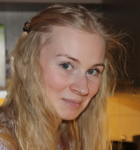Can I Have Your Attention, Please?
— Anna Pires
My interest in the area of attention began a few years ago when I attended a meeting at my son’s school. His homeroom teacher told us what wonderful and motivated kids we had, but there was a little problem. Their teachers were complaining that they were struggling to get them to pay attention in class. I think I must have laughed out loud when she said this, and had to explain that we were trying to deal with the same problem at our school.
Julian Treasure, in his TED Talk , Five Ways To Listen Better says we’re losing our listening. According to him, 60% of our communication is spent listening, but we only retain 25% of what we hear. He says that, because we’ve invented new ways of recording, we can always catch up on what we missed on the internet, so the premium on accurate and careful listening has disappeared. This allows for distraction. Julian Treasure also talks about the noisy world we live in – a visual and aural cacophony –where shared soundscapes have turned into millions of tiny personal bubbles, with people taking refuge in headphones. He says we need to train ourselves to listen better and think this is especially the case with our students.
While discussing this talk with Ceri Jones, she described a little activity that she does with her own children, which I adapted to use with my students. I have them close their eyes and focus on all the sounds they hear and try to identify them. When they open their eyes they tell their partner what they heard – were they the same sounds? This, of course, involves a lot of giggling at the beginning, but once they get used to the activity you’ll find that they really make an effort to focus on the sounds. I also have them look around the room and notice what’s around them. They choose one object and focus on it – colour, shape, texture, etc. – and then describe it so partner has to guess the object.
I’ve also introduced mindfulness in my classes because mindfulness practice strengthens the ability to choose where to put attention and keep it there. I came across a wonderful little video called One Moment Meditation which teaches simple meditating techniques. Again, a lot of laughter the first time round, but kids really enjoy the challenge of managing that minute. Whenever I notice my students’ attention is wandering, I stop whatever I’m doing and tell them it’s time for our one moment meditation. It only takes a minute, and with better results than begging them to pay attention.
Cathy Davidson, from Duke University, has done a lot of research into the brain science of attention. She says our brains are changing and that our minds pay attention in a different way, with a shift from linear to non-linear, and our schools are not adapted for these ‘new brains’. School is linear: we complete one task after another, like an assembly line, but that’s not how our kids’ brains work outside of the classroom, and I see that just watching my son play computer games at home. Davidson also talks about ‘attention blindness’ and uses the video Selective Attention Test to illustrate this.
[youtube http://www.youtube.com/watch?v=vJG698U2Mvo&w=420&h=315]
(Watch the video and do the test before reading any further)
I tried this test with my students and the results were fascinating. Those students who are usually focussed and always pay attention in class didn’t see the gorilla. The others, who have more problems paying attention, spotted the gorilla immediately.
Davidson says that when we’re concentrating too much on one thing, we tend to miss what’s really going on, hence the need for group learning and crowdsourcing, where multiple viewpoints make up for the limits of selectively ‘blind’ individuals. If we are responding in different ways, we need to pool together what we see in a way that is productive for everyone.
I decided to experiment with different tasks in class that allowed students to pay attention to different things. Just to give you an example, I started using the Word-Phrase-Sentence thinking routine, from Making Learning Visible when working on reading skills. I usually use this with authentic stories; texts which I know are a bit challenging for my students. After the lead in with all the prediction work using the title and visuals, I let students ask me questions about the characters and the plot. This generates a lot of interest as they try to piece together the story before reading it, and I let this go on until I see they are dying to read it. After reading to check their predictions, I ask them to find a word that captured their attention or struck them as powerful; a phrase that moved, engages or provoked them; and a sentence that was meaningful to them, that captured a core idea of the text. I put them in groups of 3s and they discuss and explain the different parts of the text that caught their attention.
David Keeling, in The Big Book of Independent Thinking says that many kids find it impossible to exist in ‘here and now’ for they are constantly preoccupied with other things that are not related to the task at hand. Children here in Portugal spend on average 8 hours at school. They are expected to sit quietly at their desks for long periods of time listening to the teacher and taking notes. When they come to our school at the end of the day for language lessons, getting them to pay attention is quite a lot to ask for. Keeling talks about the importance of assessing the following: their level of energy (can’t be asked or going through the roof), openness (how open are they to learning and contributing) and focus. I always start my lessons with warmers that will allow me to assess these 3 important things. I always finish my lessons with exit slips. At the end of each lesson I give my students a slip of paper and ask them a question that makes them reflect on what they’ve learnt in class, which they drop into a box that I have in the classroom. This enables me to find out what they paid attention to in class, which may not even be, and quite often, what I expected.
Joseph Cardillo, Can I Have Your Attention?, shares a story about his 3-year old daughter Isabella, who came prancing into the kitchen one day in her cute little tutu nearly tripping over a toy car in the middle of the room. After warning her a few times — Isabella completely oblivious as she pirouetted across the floor– he asked “Isabella, may I have your attention?”. She replied, “But, Daddy, that’s not possible because my attention is mine, so I can’t give it to anybody else.”
Bibliography:
Cardillo, J. (2009) Can I Have Your Attention?: How to Think Fast, Find Your Focus, and Sharpen Your Concentration. Career Press
Davidson, C. (2011) Now You See It: How the Brain Science of Attention Will Transform the Way We Live, Work, and Learn. Viking Adult
Keeling, D. (2006) Chapter 1: ‘On Love, Laughter and Learning’ – The Big Book of Independent Thinking. Ian Gilbert. Crown House Publishing
Ritchhart, R., Church, M., Morrison, K. (2011) Making Learning Visible: How to Promote Engagement, Understanding, and Independence for All Learners. Jossey Bass
Treasure, J. (2011) 5 Ways to Listen Better. TED Talks (http://www.ted.com/talks/julian_treasure_5_ways_to_listen_better.html
Connect with our iTDi Associates, Mentors, and Faculty by joining iTDi Community. Sign Up For A Free iTDi Account to create your profile and get immediate access to our social forums and trial lessons from our English For Teachers and Teacher Development courses.






